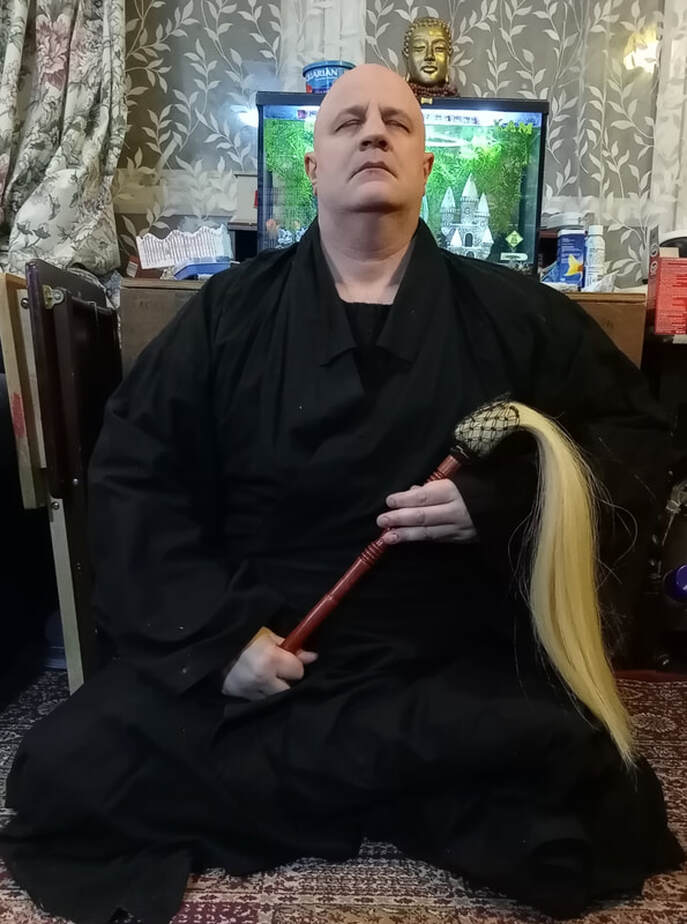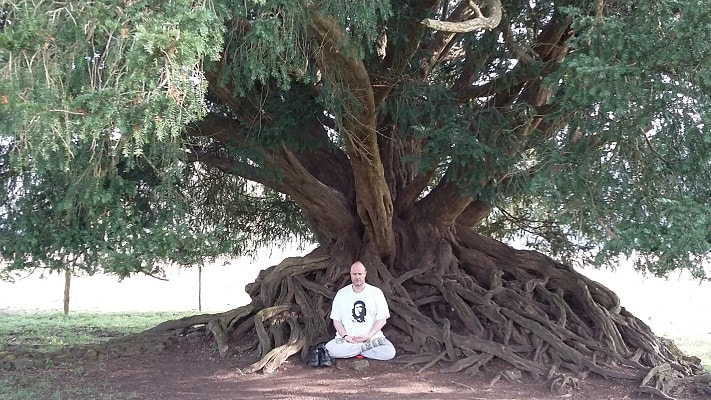Thank you for your interesting email and much appreciated kind words.
If you can see the essence of each letter - then we have no business together. Master Xu Yun (1840-1959) exuded this understanding every moment - just in case. The 'hua tou' (word head) is the method whereby the 'essence' (or 'beginning') of each word-letter is clearly perceived as forming, emerging and presenting from within the empty mind ground. As the enquiry requires a certain investigative power - usually this is provided by the question 'Who?' - deployed in any manner that suits the individual. Master Xu Yun used the hua tou 'Who is dragging this corpse around?' Another effective hua tou is 'Who is hearing?' - the latter arising from the instruction contained within the Surangama Sutra (translated by my grand-teacher - Charles Luk).
Hearing in this context is not only everything that is heard with the ears - but all sensual stimulation - as all sensory stimulation arises (and returns) to the empty mind ground. Silent Illumination is nothing more than the empty mind ground - when it is fully realised, stabilised and the mind is fully extended. The hua tou 'stills' the mind (so that 'emptiness' within the head-mind is realised) - then, with further training - this realisation of 'emptiness' expands to penetrate the entire body and the environment. This is the extension of this realised 'emptness' throughout the interaction of the six-senses and the six-sense objects (that comprise the physical environment).
The three stages of Ch'an training within the Caodong School are:
1) Surface-mind movement - delusion and confusion (guest).
2) Realised 'stillness' and 'emptiness' of mind (host).
3) Expanded awareness - whereby 'stillness' and 'emptiness' expand to incorporate the 'form' (material world) and 'void' (underlying empty mind ground). (Host-in-Host).
These three basic levels of attainment can be further subdivided into five, eight, ten or even more stages - depending upon tradition. Another way of interpreting these three stages is:
a) Delusion (the normal everyday mind).
b) Relative enlightenment ('still' mind) a sense of 'peace' limited to the individual mind - Hinayana.
c) Complete enlightenment (fully 'expanded' and permanently purified mind and senses) - Mahayana.
None of this should be of too much concern for you. If the words and letters are not returned to the empty mind ground - then we can exchange words all day long - and nothing much will happen. Recently, I was given a 'dust whisk' - imagine that! Utter madness - and yet I did not refuse it - even more unbelievable!
All Best Wishes
Adrian


 RSS Feed
RSS Feed